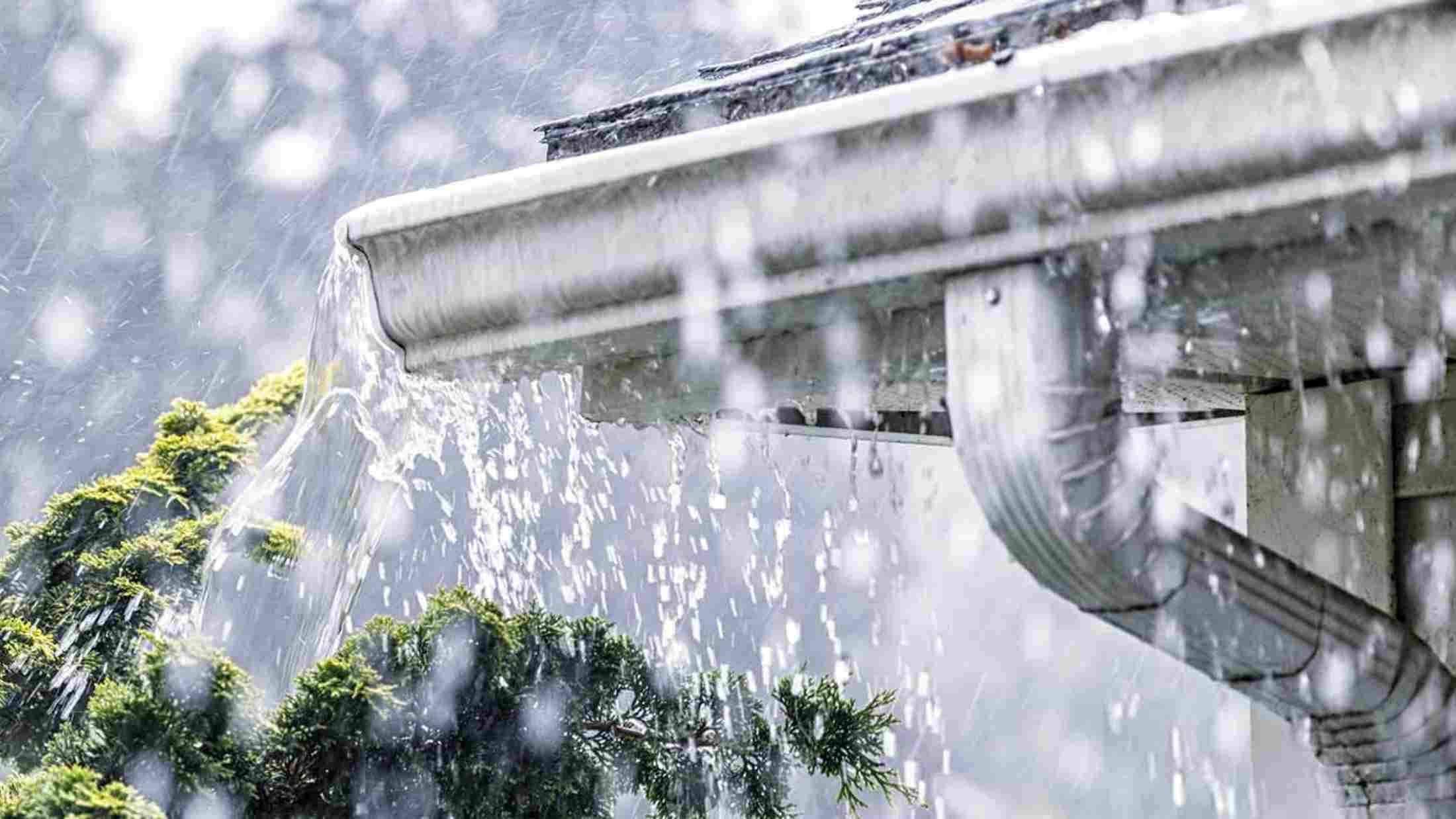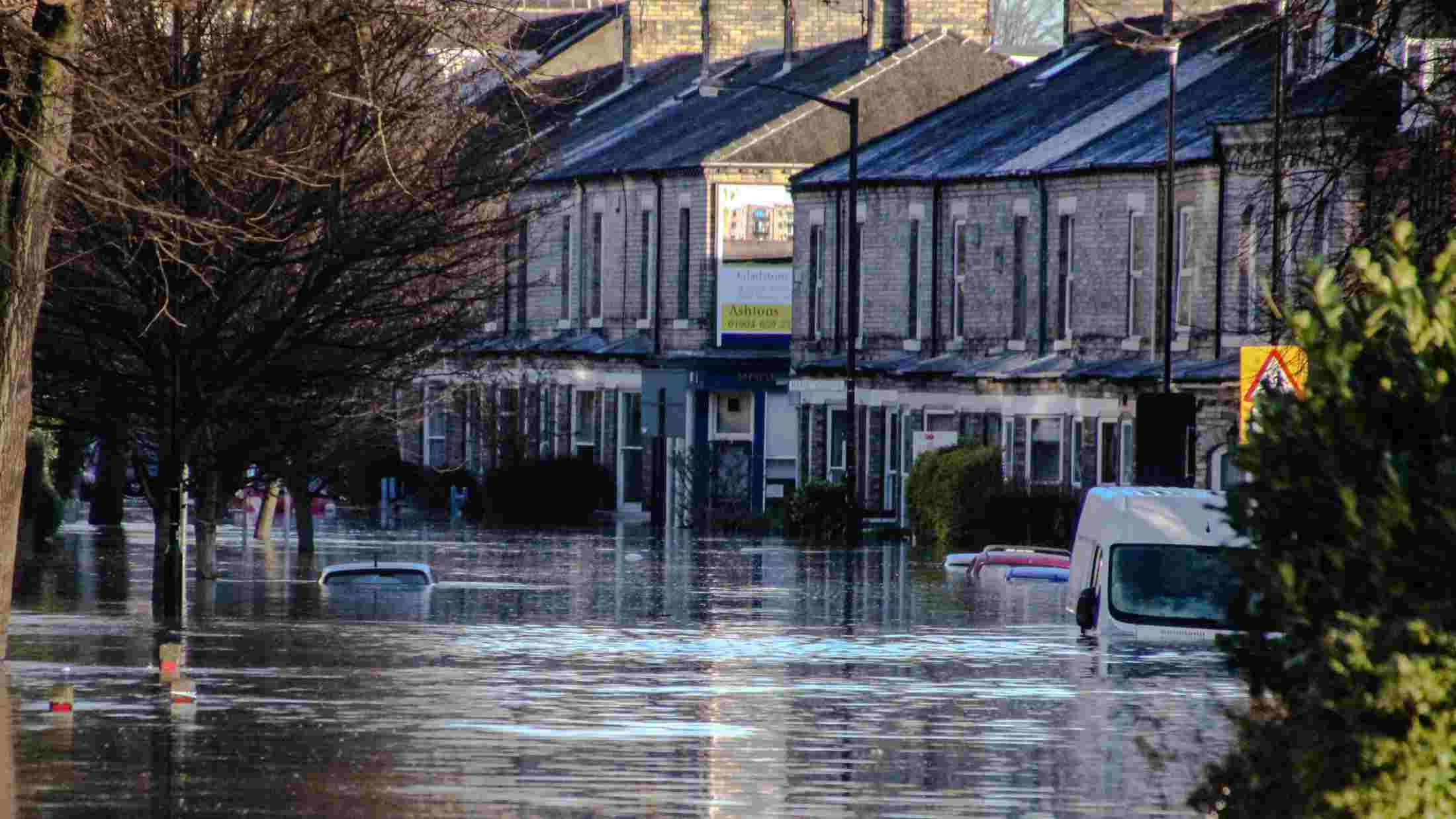Whether it’s raining cats and dogs, or blowing a gale, high winds and heavy rains can wreak havoc on your home, causing increased risk of damage.
Although we can’t control the weather, there are a few steps you can take to help protect your home before the storms arrive:
- Know your storm names
- How do I find out about storm warnings?
- Tips to safe guard your home from storms
- What do I do when the storm arrives?
- What should I do after the storm?
Know your storm names
To help increase awareness of severe weather and ensure greater public safety, the Met office and its Irish counterpart, Met Eireann have been naming storms since 2015.
Only storms expected to cause significant damage and categorised as ’medium’ or ’high’ impact will be named.
Here are the names for 2024/25 storms:
Ashley, Bert, Conall, Darragh, Éowyn, Floris, Gerben, Hugo, Izzy, James, Kayleigh, Lewis, Mavis, Naoise, Otje, Poppy, Rafi, Sayuri, Tilly, Vivienne, Wren.
How do I find out about storm warnings?
You’re likely to hear weather talk wherever you get your news.
But, you can stay up to date with the latest weather warnings by visiting the Met office website, or by following them on social media. Don’t forget - you can also follow the AXA Facebook, to get extreme weather warning updates.
Tips to safe guard your home from storms
Here our top tips to make sure your home and garden are ready for whatever the weather brings:
Get pruning
Get rid of overhanging, loose or dead branches to help prevent damage in windy weather. Before carrying out any work, consult a tree surgeon and contact your local authority to ensure the work is carried out safely and that affected trees aren’t protected.
Park your car safely
Where possible, park your car in a garage or away from trees and other objects that could cause damage when uprooted by stormy weather.
Gut your gutters
Make sure all gutters and pipes are free from debris to prevent overflow and damage to plasterwork during periods of heavy rain. Blocked and damaged gutters can cause water build up, which can run down your home’s walls and into the foundations.
You should also check for any signs that your gutters are sagging, and have them repaired or replaced. Want to find out more? Take a look at our guide on how to fix blocked and broken gutters.
Get your roof ready
Check your roof for any tiles that are cracked or loose - compromised roof tiles will be the first casualties of severe weather, so it’s best to get them repaired before they’re battered by wind or rain.
Also, be on the lookout for any damaged areas on your roof that could let water into your home. If you have a chimney, you’ll want to check that all bricks and mortar are in good condition. Finally, if you can get up into your loft, have a look to see if there’s any sign of water leakage.
If anything looks out of place, or doesn’t look right, your best bet is to bring in a professional to check things over for you.
Have a garden clear out
Put flower pots and any ornaments away, dismantle trampolines, and store away garden furniture, barbecues, children’s toys, bikes, lawnmowers and anything else that’s at risk of being knocked over or blown away during stormy weather.
Strong and sturdy
Our home insurance policies don’t cover damage to gates, hedges and fences caused by storms or floods. So, it’s a good idea to keep these well maintained, by checking they’re secure and nothing is loose. Not only will they last longer but there’s less chance of unexpected costs when the bad weather does hit.
Keep an eye out for any debris around your fence structures. Things like clumps of leaves can lead to the decay and weakening of your fence’s foundations. Protecting your fence with stain, paint or sealant will also help avoid any decay.
Close and securely fasten doors and windows - don’t forget to any garage doors too.
Insurance reassurance
Get to know your insurance, by checking what’s included (and excluded) from your home, contents and car insurance - so when the worst happens you know what you’re covered for.
It’s important to be aware that we don’t provide cover for things wearing out or breaking because they’ve not been maintained, or have naturally deteriorated over time. So making sure that you’re on top of the up-keep of your home will help you avoid any surprises in the event of a claim.
What do I do when the storm arrives?
You’ve done as much as you can to prepare, so when stormy weather hits, it’s best to ride it out until the worst of it passes.
Keep an emergency kit on hand
This could be especially useful if stormy weather results in a power cut. Basic items to prepare include:
- A list of emergency contact numbers
- Portable mobile phone charger
- Torches and batteries
- Non-perishable food
- Drinking water
- Blankets and warm clothing
- Instructions on how to safely turn off your power, water and gas
- A first aid kit
Flood advice
If you live in an area prone to flooding, it’s a good idea to install sandbags on doors, windows and any other gaps. Make sure to move any electrical equipment and any sentimental items upstairs, disconnect the pipes to dishwashers and washing machines and safely turn off gas, water and electricity mains.
Power down
If you spot damp patches within your home during heavy rainfall, turn off the electricity at the fuse, as damp wiring can be a fire hazard. Make sure you contact a professional for further assistance, rather than trying to sort anything yourself.
What should I do after a storm?
Once the storm has passed, check your home and garden for any damage. If there is anything that needs repairing, make sure you get a qualified tradesperson to carry out work needed.
If you need to make a claim, then get in touch with your insurer as soon as possible. And remember there might be certain things you aren’t covered for, so it’s important to check your policy documents before making a claim.
If there are more storms on their way, you can prepare using our tips above.
Although we can never control the weather, the most important thing we can do in the event of stormy weather is to prepare. From clearing out gutters and storing garden furniture away safely to securing outhouses and understanding the ins and outs of your insurance cover, there are plenty of easy steps you can implement to help keep your home safe from harm, so when the stormy weather hits, you won’t be out of pocket.












